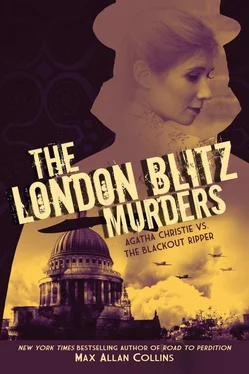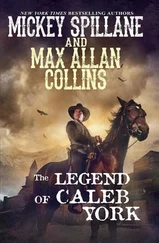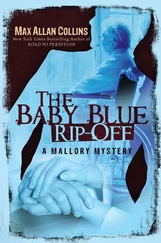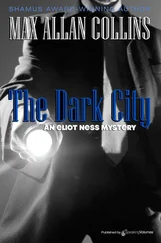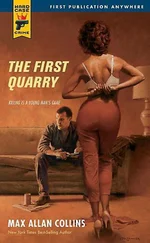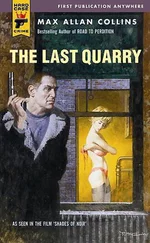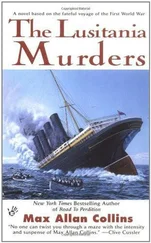Max Collins - The London Blitz Murders
Здесь есть возможность читать онлайн «Max Collins - The London Blitz Murders» весь текст электронной книги совершенно бесплатно (целиком полную версию без сокращений). В некоторых случаях можно слушать аудио, скачать через торрент в формате fb2 и присутствует краткое содержание. Жанр: Исторический детектив, на английском языке. Описание произведения, (предисловие) а так же отзывы посетителей доступны на портале библиотеки ЛибКат.
- Название:The London Blitz Murders
- Автор:
- Жанр:
- Год:неизвестен
- ISBN:нет данных
- Рейтинг книги:4 / 5. Голосов: 1
-
Избранное:Добавить в избранное
- Отзывы:
-
Ваша оценка:
- 80
- 1
- 2
- 3
- 4
- 5
The London Blitz Murders: краткое содержание, описание и аннотация
Предлагаем к чтению аннотацию, описание, краткое содержание или предисловие (зависит от того, что написал сам автор книги «The London Blitz Murders»). Если вы не нашли необходимую информацию о книге — напишите в комментариях, мы постараемся отыскать её.
The London Blitz Murders — читать онлайн бесплатно полную книгу (весь текст) целиком
Ниже представлен текст книги, разбитый по страницам. Система сохранения места последней прочитанной страницы, позволяет с удобством читать онлайн бесплатно книгу «The London Blitz Murders», без необходимости каждый раз заново искать на чём Вы остановились. Поставьте закладку, и сможете в любой момент перейти на страницу, на которой закончили чтение.
Интервал:
Закладка:
Max Allan Collins
The London Blitz Murders
“The truth is that one never believes for a minute-no matter what danger you’re in-that you yourself are going to be killed. The bomb is always going to hit the other person.”
Agatha ChristieBEFORE…
On the brink of war, London was the largest and-in the opinion of many-greatest city in the world. Metropolitan London’s population was eight million and ever-growing, the population of Great Britain herself having risen some five million souls between the First War and the coming one… a third of whom lived or worked in London.
The Port of London commanded more tonnage than any other, generating a quarter of Britain’s imports; and better than half the world’s international trade passed through the claustrophobic, clogged financial district between the East End docks and the prosperous West End. Air travel was coming into its own as well, with London at the center of a network of airways making international travel fast and practical.
London, then as now, was the seat of government-legislative, executive and judiciary, with the House of Lords the Empire’s supreme court of appeal-as well as home to the royal capital… Buckingham Palace, Westminster Abbey, St. Paul’s and even the Tower of London down the Thames, where heads no longer rolled and the crown jewels were under watch by guards (and tourists).
Education was well-represented by eminent grammar schools (Alleyns, Battersea) and fine public schools (St. Paul’s, Westminster), while London University rivaled Cambridge and Oxford. There were museums-the British Museum and National Gallery were only the beginning of an impressive array-and theater that made New York’s Broadway look like the shabby vaudeville it was, plus comedies and musicals representing homegrown vaudeville as gloriously tasteless as anything the Yanks could muster.
Of course, a London resident had a higher cost of living than elsewhere in the kingdom; but the standard of living was also high, and even during the Depression-quelled by an economy spurred on by imminent war-unemployment had been low. The East End still had its share of poverty, however, and some considered a Bolshevik revolution inevitable.
A greater and even more imminent threat seemed to be London itself-its vulnerability, its dense population in a relatively small area, its attraction to an enemy desirous of delivering a “knock-out blow” to a target seemingly primed for an aerial attack.
And as we know, the bombs did drop… and the city did endure.
This is one small story in that greater drama, the account of one brave woman in that brave city, who like that city survived with dignity…
… and of a murderer who did not.
FEBRUARY 9, 1942
T he wartime blackout, imposed in September of ’39, was a fact of life Londoners had long since learned to live with-streetlights off, vehicles turned into one-eyed monsters (with the remaining headlight wearing a shade), and either a blocking board or black curtain screening all windows. Officious air wardens, particularly in the early days, had been the bullies in charge of banishing all illumination. Now no one thought about it, really. Compliance was second nature .
The blackout was part and parcel of being at war-like the sandbags piled high along sidewalks, the vaguely animal-like barrage balloons hovering over the city (like the air wardens, well-inflated), the starkly cheerful airbrushed posters advising Londoners to “carry on” and “do their bit.” Even the sentries at Buckingham Palace had swapped their bright red uniforms for dingy battle fatigues, and streetcorner bobbies had traded in their helmets for tin hats .
Over two years into the war now, it was difficult to remember a time when children played on the sidewalks (most kiddies had been evacuated early on), and when automobiles on the street were thick as flies and not scarce as hen’s teeth-a time when the tabloids were longer than a few pages, and a sales clerk wrapped your package in precious paper .
The city, or at least its people, seemed shabby of late-the clothing drab in color, often threadbare, no matter what your social status; new clothing was a rarity in this town, and when you wore new togs, you felt vaguely ashamed. The drabness extended itself to buildings-broken windows had become the exception, not the rule, and few structures wore fresh coats of paint; it seemed lacking in taste, somehow, when neighboring structures were piles of rubble .
Not that the city allowed itself to be a dirty, dusty shambles-repairs were constant. On this typically overcast, coldly dreary Monday morning, the street and sidewalks dusted with snow, workmen were repairing potholes. The latter were not the fault of the Germans-the last major attack had been back in May, after all, on the tenth…
… a night no one living in London was likely to forget. The Thames at low ebb, the moon full, the Luftwaffe delivered the war’s worst raid thus far-Westminster Abbey damaged, the Mint, the Tower, the Law Courts, the British Museum hit, even Big Ben’s face had been scarred (though still tolling right on time), as fires raged… and more than three thousand Londoners lost their lives….
A shattered city had trembled, dreading the next attack; but nothing came, not for months, and even then nothing to compare to the tenth of May. And as days turned to weeks and weeks to months, the sense that the Blitz might be (dare one say it?) over provided a desperation-tinged hope .
Not that the city was letting down. Small but punishing German raids did occasionally still occur, the all-too-familiar banshee warning again piercing the London air-particularly following an Allied raid, most particularly when the target had been Berlin .
And, so, sandbags and rationing and propaganda posters and of course the blackout continued .
But the shelters weren’t being so widely used, in this lull in the Blitz; and even when bombs were raining on London, many had preferred to stay home and take their chances, rather than crawl into a privately owned (usually ensconced in a garden) Anderson shelter, two corrugated sheets of steel bolted at the top, stuck three feet into the earth, with a sheet-metal door, and protected by an earthen embankment. With no drainage, these shelters for six were a nightmare; between the rain and certain human needs, one well might prefer the relative dignity of staying home and being blown to smithereens .
Then there was the public standard shelter of brick-and-lime mortar walls, perched unsupported on a roadway, with a nine-inch reinforced concrete slab on top. The public had soon dubbed these sandwich shelters, because a blast could suck the shelter walls outward, turning the occupants into the meat between concrete and roadway slices .
The “tubes” of the subway system were adapted into shelters as well, but mosquitoes and fierce winds (sometimes cold, sometimes hot) eventually relegated that option to the homeless. Little societies had developed down there, and even though they could be relocated, these ragged bands preferred their new underground world .
A workman named Peter Rushing, age thirty-eight, lanky and hard-hewed, was running short on sand in his pothole-filling effort. He knew where to “borrow” some, easy enough ….
Brick shelters like this one had to be built in the streets; there was no room, was there, for a structure like this in Montague Place, in the Central London district of Marlyebone, whose long, straight streets and endless rows of stately buildings-occasionally disrupted by bombed-out patches, like absent teeth in an otherwise impressive smile-included scant room for gardens. This shelter-between Edgware Road and Baker Street (both of whose flats and high-class shops had largely been destroyed in 1940’s raids)-was but one of hundreds lining London’s streets, a spare cubicle with a seat built along one side. Nothing could be more ordinary .
Читать дальшеИнтервал:
Закладка:
Похожие книги на «The London Blitz Murders»
Представляем Вашему вниманию похожие книги на «The London Blitz Murders» списком для выбора. Мы отобрали схожую по названию и смыслу литературу в надежде предоставить читателям больше вариантов отыскать новые, интересные, ещё непрочитанные произведения.
Обсуждение, отзывы о книге «The London Blitz Murders» и просто собственные мнения читателей. Оставьте ваши комментарии, напишите, что Вы думаете о произведении, его смысле или главных героях. Укажите что конкретно понравилось, а что нет, и почему Вы так считаете.
